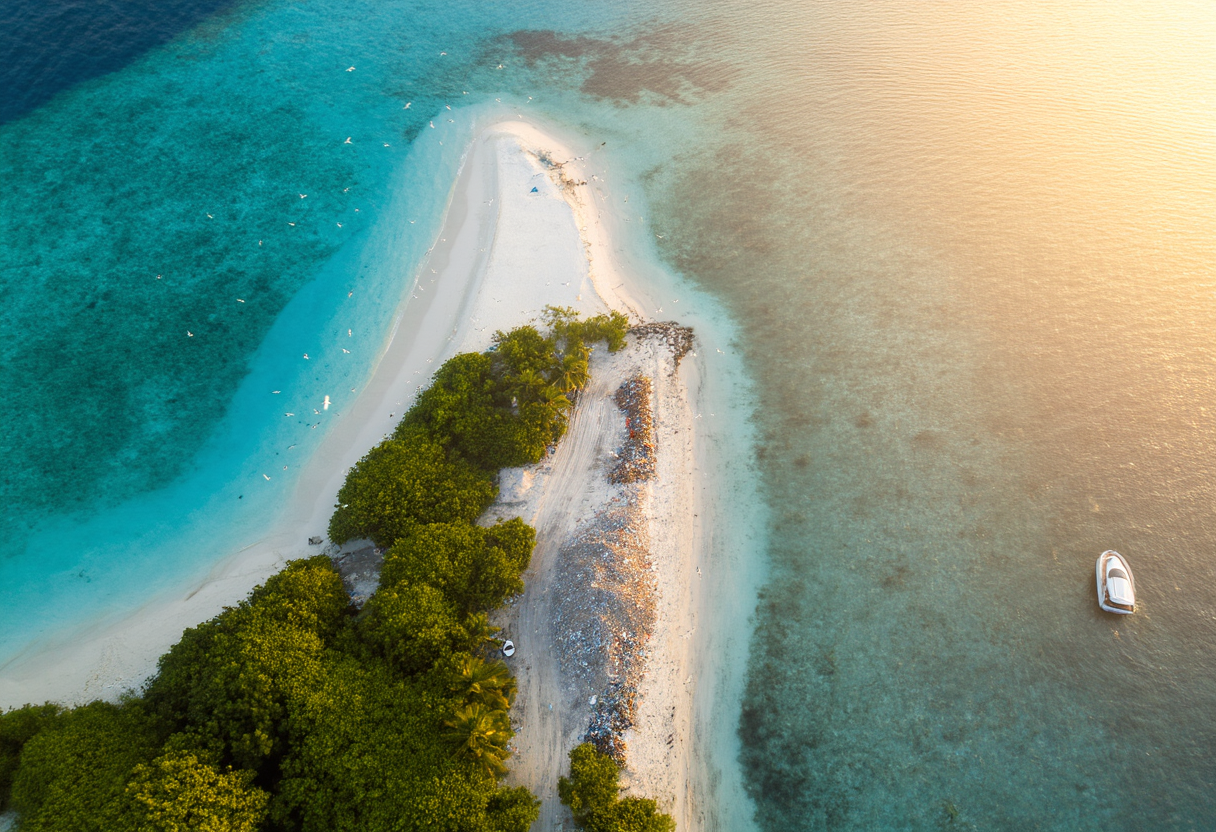Exploring the Ecological Impact of Island Tourism
This article delves into the ecological impact of island tourism, exploring both the benefits and challenges it presents. While it can promote conservation and sustainable practices, uncontrolled tourism can lead to environmental degradation. Understanding the dual nature of island tourism is essential for fostering sustainable practices that prioritize ecological welfare.
The Dual Nature of Island Tourism’s Ecological Impact
Island tourism presents a complex environmental picture, with both positive and negative implications. On one side, tourism has the potential to drive conservation efforts by generating funding and raising awareness about ecological issues. Many island destinations have leveraged tourism revenue to finance preservation projects, creating an opportunity for sustainable practices. However, this influx can also lead to environmental stress, as increased foot traffic results in habitat destruction and resource depletion. Balancing the benefits and challenges of island tourism requires thoughtful strategies that prioritize ecological health. Ultimately, fostering a sustainable approach can mitigate adverse effects while promoting conservation.
Positive Contributions to Conservation
Island tourism can significantly contribute to conservation efforts, as the financial resources generated often support local ecosystems. Revenue from tourism allows for the establishment of protected areas, funding for wildlife research, and community-awareness programs. Additionally, involving tourists in conservation activities can enhance their appreciation for the environment. Ecologically responsible tourism practices, such as wildlife viewing and responsible hiking, encourage visitors to be stewards of stunning ecosystems. However, these benefits are intricately connected to how well tourism is managed. The commitment to sustainability must come from all stakeholders, including government, businesses, and travelers themselves.
The Risks of Over-Tourism
While tourism is an economic boon, excessive visitor numbers can lead to significant ecological strain. The concept of over-tourism highlights the detrimental effects when destinations become saturated. Habitat loss, pollution, and resource competition often result from unchecked tourist activities, threatening the very landscapes travelers come to appreciate. Some islands have recognized the urgency of this issue, imposing visitor limits and promoting off-season travel. Sustainable measures, such as eco-certification for tourism operators or visitor education programs, are essential to combat over-tourism. A multifaceted approach that balances tourism interests with environmental protection is imperative for maintaining the allure of island destinations.
Restoration through Ecotourism
Ecotourism emerges as a vital strategy for mitigating the ecological impact of island tourism. By focusing on responsible travel that benefits local wildlife and habitats, ecotourism reinforces the commitment to sustainable practices. This framework not only enhances visitor experiences but also fosters stronger connections between tourists and nature. Implementing ecotourism initiatives can restore degraded environments, emphasizing conservation over exploitation. Travelers become participants in preserving the fragile ecosystems, turning their vacation choices into impactful decisions. Supporting local communities through ecotourism can create a positive feedback loop, where both traveler satisfaction and environmental health improve.
Collaborative Efforts for Sustainable Tourism
Addressing the ecological impacts of island tourism calls for collaborative efforts among various stakeholders. Local governments, tourism boards, and environmental organizations must work together to create comprehensive strategies that encourage responsible tourism. Collectively developing policies that address visitor management, habitat protection, and community engagement is imperative. By prioritizing stakeholder collaboration, strategies can be tailored to meet the unique needs of individual islands. Furthermore, fostering awareness and education within the tourism sector will ensure future travelers understand their ecological footprints. Strengthening partnerships can lead to innovative solutions that bolster both tourism and environmental sustainability.
A Vision for Future Island Tourism
The future of island tourism hinges on a balanced approach that values both economic benefits and environmental stewardship. The duality of tourism's impact necessitates an adaptive strategy that evolves as challenges arise. Stakeholders must remain vigilant, anticipating changes in traveler behaviors and environmental conditions. This forward-thinking perspective can help promote sustainable practices that not only benefit the economy but also preserve the islands’ natural beauty. Engaging travelers in the narrative of conservation is essential, making them part of the ongoing dialogue surrounding island tourism. Ultimately, the key to the future will be fostering a comprehensive understanding of how island tourism and ecological health can coexist harmoniously.
